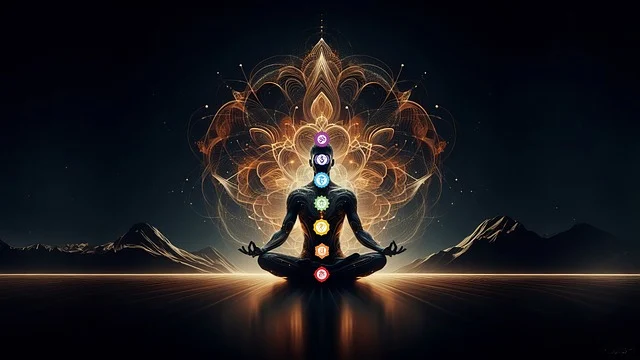
Energy Healing Practitioners use techniques like Reiki and therapeutic touch in efforts to balance the energy field inside the body. A lot of statistical research has been done about the loss of stress, pain, and anxiety. Therefore, this article discusses recent analyses made with respect to scientific research into energy healing, thus giving a clear summary of its impact and functionality according to recent studies.
What Do Research Findings Say About Energy Healing Effectiveness?
Energy healing decreases stress and soothes the mind as studies suggest. Potential experiments indicate that techniques for energy healing may even show pain relief and decrease levels of anxiety with a tendency to enhance well-being, although findings become problematic without standardized methodologies and subjective outcomes.
The findings of clinical trials and meta-analyses can be mixed, and therefore, the efficacy must be confirmed by research designs that are more stringent. However, despite these facts, energy healing continues to be very popular since no surgical procedure is involved and it falls under the holistic understanding of health and wellbeing.
Does Energy Healing Impact the Levels of Stress and Anxiety?
It has been found that through energy healing research, there exists a reported decrease in stress and anxiety based on either the safe setting developed or the interaction occurring between practitioner and client. Some hold that Reiki and therapeutic touch create a natural relaxation response from the body, thus decreasing levels of stress hormones such as cortisol.
Such concepts are supported by small-scale research and even patients, but for any concrete conclusion, large-scale randomized controlled trials are called for. This may be an intention of the provider, a contact that is touch-like, and a patient expectation so that the role of energy healing is more complementary than as an independent treatment.

Is Energy Healing Supported by Clinical Trials?
Several clinical trials have evaluated effects of energy healing on, for instance, chronic pain, anxiety, and fatigue. Some display moderate benefit but others indicate results from placebo effects. In addition, methodological differences in terms of practitioner techniques, duration, and patient expectations also create complex difficulties in comparison.
Several studies have been criticized for their small sample sizes and lack of blinding, thus making these studies of questionable reliability. Still, there are several findings that do indicate promising trends if energy healing is used in conjunction with conventional care. The mixed evidence heralds a call to use standardized protocols and a number of large-scale randomized controlled trials to clearly establish better evidence.
What is the Role of Placebo in Energy Healing?
The placebo may play a very relevant role in the outcome of energy healing. Patients’ belief in the treatment and the therapeutic environment will certainly affect their perception of relief. This phenomenon is strengthened by the healing environment, the presence of a practitioner, and patient expectations.
There has been evidence of the fact that receiving compassionate care itself makes the body heal and refresh its self-healing mechanisms. The challenge of such research into energy healing, however, is that one cannot distinguish between the real therapeutic effects and the placebo responses.
This does not, of course, invalidate all these patients’ experiences but points instead to how much importance attaches to mind-body interfaces in the perceived benefits. More objective and measurable outcomes are henceforth to be developed for future studies.
Are there physiological changes during energy healing?
Some research into energy healing has documented physiologic changes such as decreased heart rate, lowered blood pressure, and lowered levels of stress hormones. These are often changes that have been ascribed to the relaxation response of the body.
Another possibility is that energy healing somehow modulates interactions in the biofield, although this theory is highly speculative and not accepted by the broader scientific community. The most likely place of action of the autonomic nervous system is in the body’s player, alternating between a stress-dominant condition to a more balanced state.
Indeed, such effects do match reduced levels of stress; it remains to be determined whether energy healing directly causes them, or whether they are the consequence of the therapeutic environment and expectations of the patient.

How Does Energy Healing Compare to Other Complementary Therapies?
Energy healing is a non-invasive method similar to therapies like acupuncture and mindfulness since it focuses on balancing the human body’s energy fields to facilitate healing. While there are some studies that spotlight the benefits of this form of treatment, its success rate differs from other modalities; however, it places emphasis on the need for an individually suited plan for each patient.
Mindfulness is focused on mental awareness, whereas energy healing revolves around intention and energy transfer. The available scientific evidence on these therapies varies but is often condition-dependent; acupuncture works better for pain relief than energy healing. This therapy remains popular among many patients looking for a non-invasive, holistic approach to cure their ailments. Despite this, energy healing is comparative and may be best suited to be part of an integrated treatment strategy.
What are some challenges that confront studies of energy healing?
Research in energy healing also faces challenges of small sample sizes, and difficulty in creating the placebo-controlled condition. Moreover, the lack of established standard best practices for most of the techniques in energy healing makes it hard to develop conditions for either replicable study or generalization of results.
Subjective results, too, are often accompanied by measures of alleviation from pain and stress as experienced by the patient. Practitioner variation, too, can introduce variability to any result as the former directly contaminates studies.
Although some studies do report evidence for energy healing benefits, methodological limitations enter and have to be taken with great caution. Any genuineness efficacy for this technique can only be established through future studies using stricter designs, blinding, larger participant groups, and objective biomarkers.
Key Takeaway
Although the evidence is not entirely uniform, energy healing may turn out to be a good stress reliever and means of well-being. However, while some studies have been able to report the effectiveness of this modality, factors in research design require more standardized investigation in the study. As adjunct therapy, energy healing makes it possible for patients to present non-invasive choices while focusing on holistic health and the mind-body connection.
